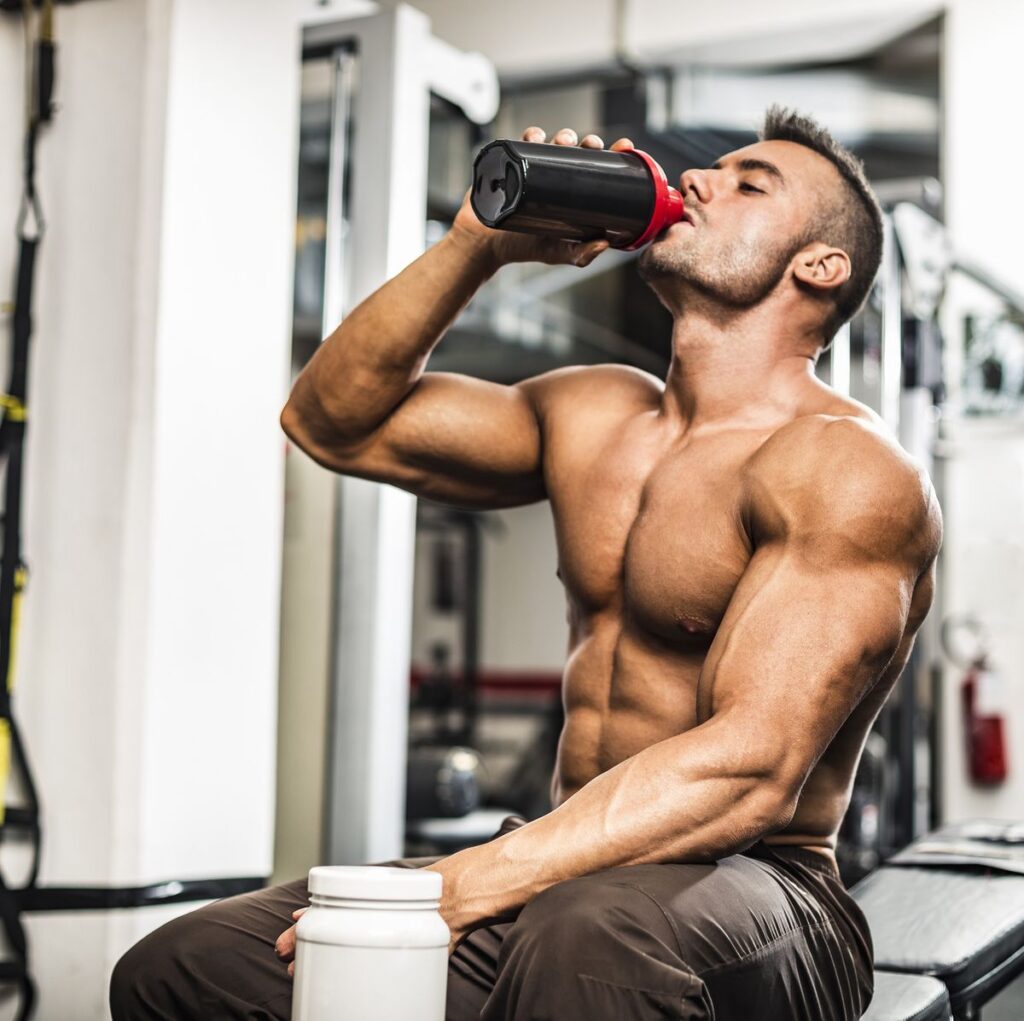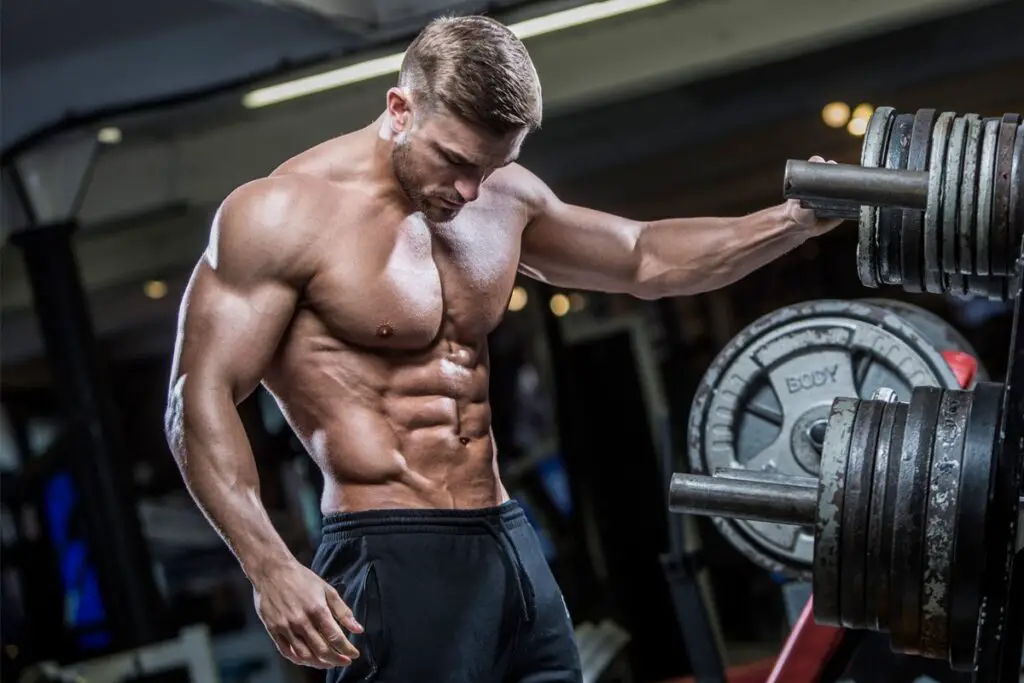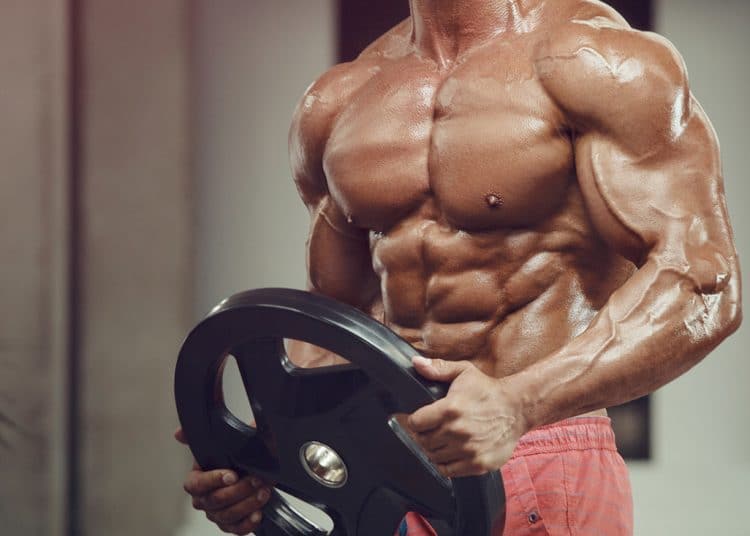Introduction
How Long To Wait After Eating To Workout Bodybuilding: Understanding the optimal timing for exercise after a meal is essential for those who are dedicated to maximizing their muscle growth, strength gains, and overall fitness. This introduction will explore the various factors that come into play when deciding how long to wait after eating before engaging in bodybuilding workouts.
To recognize that there is no one-size-fits-all answer to this question. The ideal timing can vary significantly from person to person, depending on factors such as individual metabolism, the composition of the meal, and personal preferences. Some individuals might feel energized and perform better with a small meal or snack shortly before their workout, while others may prefer a more extended period of fasting to avoid any discomfort during exercise.
Digestion plays a pivotal role in determining when to work out after eating. A meal rich in complex carbohydrates and proteins may take longer to digest than a simple snack of easily digestible carbohydrates. Therefore, the type and size of the meal can influence the waiting time before exercise. Additionally, personal tolerance for discomfort during workouts can influence the decision. Some may be comfortable working out soon after eating, while others may need more time to digest to prevent gastrointestinal distress.

Why wait 2 hours after eating to workout?
It generally takes 2–4 hours for food to completely move from your stomach to your small intestine ( 1 ). While it’s usually unnecessary to wait until food is fully digested before exercising, it’s best to give it some time to settle in your stomach.
Digestion Process
To understand why it is advised to wait before exercising after a meal, we must first delve into the process of digestion. When we eat, our body directs a significant amount of blood to the digestive system to facilitate the breakdown of food and the absorption of nutrients. This shift in blood flow away from muscles and towards the stomach and intestines can have several consequences for a person who attempts to work out immediately after eating.
Reduced Blood Flow to Muscles
During digestion, the body allocates a substantial portion of its blood supply to the gastrointestinal tract. This means that there is less blood available to transport oxygen and nutrients to the muscles. Without sufficient blood flow, muscles may not receive the oxygen and energy they need, potentially leading to decreased performance during exercise.
Risk of Gastrointestinal Discomfort
Exercising on a full stomach can cause discomfort and lead to gastrointestinal issues such as cramping, bloating, and even nausea. The physical jostling and compression of the stomach and intestines during exercise can exacerbate these symptoms. This is especially true for high-impact or strenuous workouts.
Blood Sugar Regulation
After a meal, blood sugar levels rise as the body digests carbohydrates. Exercise can also affect blood sugar levels, causing them to rise or fall depending on the intensity and duration of the workout. Exercising too soon after eating can disrupt the body’s ability to regulate blood sugar, potentially leading to fluctuations that could be harmful, particularly for individuals with diabetes.
How long should you wait to workout after eating to build muscle?
The general guideline is to eat a full meal three to four hours before exercising, a higher carbohydrate snack two hours before, and/or a smaller, easy-to-digest carbohydrate right up until you start.
1 to 2 Hours Before: Many fitness experts recommend consuming a balanced meal containing carbohydrates, protein, and healthy fats approximately 1 to 2 hours before your workout. This timing allows your body to digest and absorb the nutrients, making them available for muscle repair and growth during exercise.
Carbohydrates: Including carbohydrates in your pre-workout meal provides your muscles with a readily available source of energy (glycogen). This can help you maintain intensity and endurance during your workout.
Protein: Protein is essential for muscle repair and growth. Consuming a protein-rich meal before your workout ensures that your muscles have an adequate supply of amino acids (the building blocks of protein) available during and after exercise.
Fats: Healthy fats can provide sustained energy during your workout. Including sources of healthy fats, such as avocados or nuts, in your pre-workout meal can help you maintain energy levels throughout your training session.
Hydration: Staying hydrated is vital for optimal muscle function and performance. Be sure to drink enough water before, during, and after your workout.
Can I lift weights straight after eating?
Generally speaking, give yourself anywhere from one to three hours to participate in weight training after eating. Since carbohydrates are your body’s preferred source of fuel, they should make up the largest percentage of your macronutrients in the foods you eat during this time, followed by protein, then fat.
Energy Availability: One of the primary advantages of working out after eating is the immediate availability of energy. The food you consume provides your body with carbohydrates, which are a primary source of energy for physical activity. Having this readily available energy can help you perform better during your workout.
Blood Sugar Control: Eating before exercise can help stabilize blood sugar levels, preventing hypoglycemia (low blood sugar) during your workout. Stable blood sugar levels can ensure you have enough energy to sustain your strength training session.
Nutrient Delivery: When you consume a meal before working out, the nutrients from that meal are circulating in your bloodstream. This means that amino acids from protein, for example, are readily available to support muscle repair and growth during and after your workout.
Can I eat 30 minutes before workout?
After a big meal: Give your stomach time to digest. Let your body rest 2-3 hours before hitting the gym. In between meals: Your body could use a boost. Eat a snack 30-60 minutes before the start of a workout to give you the energy needed.
Choose Easily Digestible Foods: Opt for foods that are easy on the stomach, such as a banana, a small serving of yogurt, or an energy bar. These options are less likely to cause digestive discomfort.
Keep Portions Small: Avoid overeating, as large meals can increase the risk of digestive issues. Stick to a moderate-sized snack to provide enough energy without overloading your stomach.
Experiment and Listen to Your Body: Everyone’s body reacts differently to pre-workout nutrition. It’s essential to experiment with different foods and meal sizes to find what works best for you. Pay close attention to your body’s cues, and if you experience discomfort, consider adjusting your timing or food choices.
Stay Hydrated: Hydration is crucial before a workout. Make sure to drink enough water to stay adequately hydrated, especially if you’re eating close to your workout time.
Is it OK to go to gym after dinner?
Key takeaways: When you exercise too soon after eating, it may cause gastrointestinal issues that hinder your workout. General guidelines suggest exercising 1 to 2 hours after a small meal and 30 to 60 minutes after a snack to fuel your workout and prevent stomach problems.
Digestive Timing: To reduce the risk of digestive discomfort, wait at least 1 to 2 hours after dinner before heading to the gym. This allows for partial digestion and minimizes the chances of bloating or cramping.
Choose a Lighter Dinner: If you plan to work out in the evening, opt for a lighter dinner that includes lean proteins, complex carbohydrates, and vegetables. Avoid heavy, greasy, or spicy foods that may be more likely to cause discomfort.
Hydration: Stay hydrated throughout the day and before your workout to compensate for fluid loss during exercise.
Monitor Sleep: Pay attention to how evening workouts affect your sleep patterns. If you find it challenging to fall asleep after late gym sessions, consider adjusting your workout time or intensity.
Is it OK to workout 15 minutes after eating?
If you’ve just eaten a meal, you should wait two to three hours before you work out; and if you’ve just eaten a snack, wait about a half hour, McDaniel says. If you’re going to do a cardio workout, this snack should be higher-carbohydrate, moderate in protein, and low-fat (but you don’t need to go fat-free).
Choose Easily Digestible Foods: If you plan to work out shortly after eating, opt for easily digestible foods. Consider a small, balanced snack that includes carbohydrates and protein, such as a banana with almond butter or a yogurt parfait.
Monitor Your Body’s Response: Pay close attention to how your body reacts to exercising after eating. If you experience discomfort, digestive issues, or reduced performance, you may need to adjust your timing or food choices.
Hydration: Stay well-hydrated before, during, and after your workout to support overall performance and recovery.
Portion Control: Avoid overeating before exercise. Stick to a smaller portion if you plan to work out shortly after eating to reduce the risk of digestive problems.
Can I exercise 1 hour after eating?
As a general rule of thumb, you should wait to exercise until three to four hours after eating a meal, and one to two hours after eating a snack, advises Ansari.
Meal Size and Composition: The type and size of the meal you consume before exercise can influence how you feel during your workout. Opt for a balanced meal containing carbohydrates, protein, and healthy fats. Avoid heavy, greasy, or spicy foods that may be more likely to cause discomfort.
Hydration: Stay well-hydrated before, during, and after your workout. Proper hydration supports overall performance and helps prevent issues like cramping.
Personal Tolerance: Individual tolerance to exercising after eating varies. While some people may have no issues with this timing, others may still experience digestive discomfort or reduced performance.
Intensity and Type of Exercise: The type and intensity of your workout can affect how you feel after eating. High-intensity workouts may require more time for digestion, while light or moderate activities may be more suitable one hour after eating.
Monitoring Your Body: Pay attention to how your body responds to exercising after eating. If you experience discomfort, digestive problems, or reduced performance, you may need to adjust your timing, meal composition, or workout intensity.
What happens if I workout after eating?
“If you eat a large meal too close to the start of a workout, especially foods that take longer to digest [including protein and fat], you can experience cramps, sluggishness, or a brick-sitting-in-your-stomach feeling,” says Cynthia Sass, MPH, MA, RD, CSSD, a board-certified sports dietitian in private practice in Los .
Energy Utilization:When you work out after eating, your body has access to the nutrients from your meal, primarily carbohydrates. Carbohydrates are a primary source of energy, and exercising after eating can help you utilize this energy source effectively. This can potentially lead to improved exercise performance and endurance.
Nutrient Availability:The nutrients from your meal, such as amino acids from protein, are circulating in your bloodstream when you exercise after eating. This can aid in muscle repair and recovery during and after your workout. Having readily available nutrients can be beneficial for individuals looking to build and repair muscle.
Blood Flow Redistribution:During exercise, your body redistributes blood flow to the working muscles to meet their increased demand for oxygen and nutrients. This redistribution may divert blood away from the digestive system, potentially leading to mild digestive discomfort, including bloating or cramping, for some individuals.
Individual Tolerance:The tolerance for exercising after eating varies among individuals. Some people may feel comfortable and perform well, while others may experience discomfort or a decrease in exercise intensity. Personal preferences and the body’s response play a significant role in determining whether this practice is suitable for you.
Timing Matters:The timing of your meal in relation to your workout is crucial. Exercising immediately after a large, heavy meal may increase the risk of digestive discomfort, while working out one to two hours after a smaller, balanced meal can minimize these issues.
Hydration:Staying well-hydrated is essential when exercising, regardless of when you eat. Proper hydration supports exercise performance and helps prevent issues like muscle cramps and overheating.

Conclusion
It’s clear that there is a delicate balance to strike when it comes to timing your meals and workouts for optimal performance and results in bodybuilding. Some individuals may thrive on a pre-workout meal or snack, benefiting from the added energy and nutrients to power through their training sessions. Others may prefer to allow more time for digestion, avoiding any discomfort or potential distractions during their workouts.
Understanding your body and listening to its signals is paramount in making the right choice for your fitness journey. Paying attention to how your body responds to various timing strategies and meal compositions can help you fine-tune your approach over time.
Moreover, the scientific evidence suggests that the type of exercise you engage in can also play a role in determining the best time to eat before a workout. For instance, high-intensity resistance training may benefit from a pre-workout meal, while some forms of cardio exercise may be more comfortable on a relatively empty stomach. Ultimately, the key takeaway is that there is no universally correct answer. What works best for one person may not work for another. The optimal timing for eating before a bodybuilding workout is a highly individualized decision that should consider your goals, comfort, and preferences.

